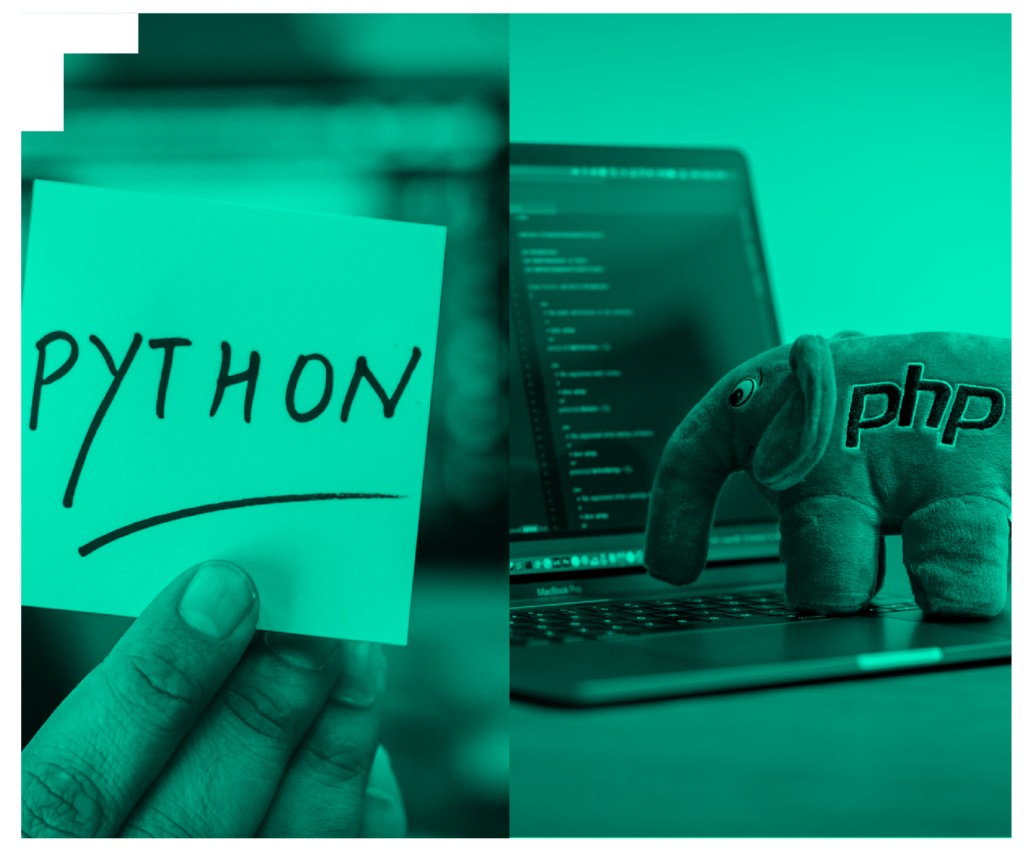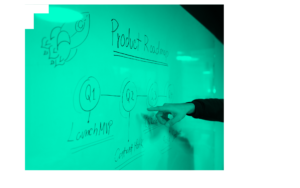
If you want to produce a high-performing, scalable, reliable and secure web product, you must choose wisely when it comes to your technology base, including the programming language.
There has been a battle raging for decades now in an attempt to win the hearts and minds of software developers: Phyton vs PHP, which is the top gun?
PHP (‘Hypertext Preprocessor’) is a general-purpose, open-source platform, created in 1995, designed originally as an HTML generator but now commonly used for web development and server operations.
Phyton is a dynamic, object-oriented language created by Guido van Rossum for scripting initially, and it’s been around since ’91. (It got its name from “Monty Python.” if you ever happen to stumble into the worlds-geekiest pub quiz).
This article takes a deep dive into their respective plus-points and drawbacks so you can decide for yourself the best fit for you and your project.
PHP vs Python: Features
Features of PHP
- It is simple and easy to learn compared to other scripting languages.
- Compatible with most popular operating systems, i.e. Windows, Linux, Unix, and Mac OS.
- An open-source server-side programming language.
- Supports many databases- MySQL, Oracle, Informix, SQLite, Sybase, and many more.
- Supports variables without declaring data types (data types in Python are described at the execution time based on the variable value).
Features of Python
- Python code is simple and easy to write compared to other programming languages such as C, C#, Java, and JavaScript.
- It’s a portable language that runs programs on any Windows, Unix, Linux, and Mac.
- It can be integrated with other languages, such as C, C++ easily.
- The recommended choice to create applications based on ML and other technologies.
- Developers don’t need to control memory or system architecture.
PHP vs Python. Which one is superior?
To understand which is the best of PHP vs Python, we compared the two languages on a few crucial aspects. Let’s discuss….
Performance Python WAS considered the most powerful programming language. However, PHP version 7, released in 2007, has completely changed the landscape. Now PHP is three times more efficient than Python and other programming languages, quickly able to handle gigantic amounts of data. The speed and the scalability increase the efficiency of PHP in comparison to Python.
- Library Support
For library assistance, Python beats PHP since it is bundled with several libraries. Many organizations are now making investments in Machine learning web-based applications, and Python has a whole host of Machine learning libraries (including TensorFlow, Scikit, Learn, and many more). PHP support for libraries is lacking, certainly in comparison.
- Community Support
In terms of support for the community, both languages have almost the same role. As one of the most ancient and popular server-side languages, PHP has vast community support. Plus, most websites on the internet use it. However, Python isn’t far off. It’s been in the spotlight since Google began using it in its programs such as YouTube, and many other tech giants (such as Instagram and Uber) have utilized it to build their backends in the years since.
- Complexity
Both are object-oriented languages, which are fully compatible with the operating system. However, when it comes to user-friendliness, Python is more user-friendly than PHP.
PHP is a rigid syntax, whereas Python has a high level of readability, making it very easy to comprehend- therefore, easier to read, assist and debug.
- Documentation
PHP has a comprehensive documentation website that lets developers post their comments on the document pages. Documents are written in straightforward language so both beginners and experienced developers can grasp without too much trouble, clarifying the ideas in a conversational style. However, this can be a bit of a double-edged sword as the same comments that clarify for some add confusion for others, cross-referencing between the documents written by different hands.. There are no documentation issues in Python so we would probably give this round to them on that basis.
- Debugging
Python and PHP are similar for debugging because both have advanced tools, such as breaks, stacks, mapping paths, and more. The only distinction between them is the way they are set up.
- Syntax
The ability to code without errors is an essential aspect for developers to consider while learning a language. Python syntax is more straightforward than PHP because Python is easier for developers to program without having to think about its limitations causing problems in the build.
Conclusion
Phyton and PHP have both been around for a long time, firmly-established titans of programming language.
Phyton’s popularity stems from its all-sing, all-dancing versatility: it’s all-purpose and can be written in almost any computer environment.
PHP isn’t – and wasn’t – designed for this, but solely to develop backend web applications. Its sheer simplicity of use and durability is the reason for its loyal server-side following online.
Which is best? The choice is yours.
For a closer look at your choices for the development software, have a look at our short read on Flutter versus Native: https://www.creativestack.co.uk/phyton-vs-php/
Greg Whitfield, MD


